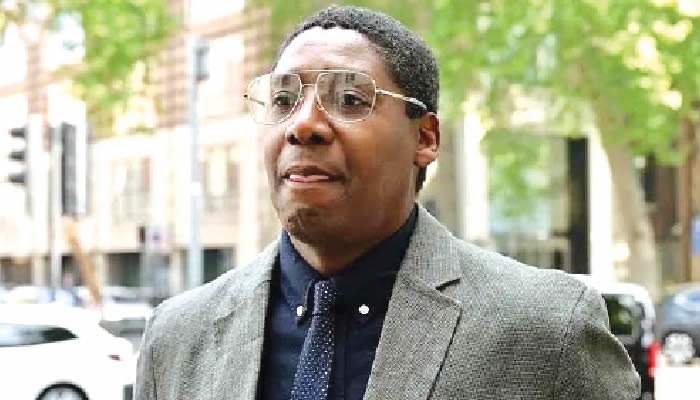Oghenochuko “Ochuko” Ojiri, a 53-year-old British-Nigerian art dealer, was sentenced to two and a half years in prison on June 6, 2025, at the Old Bailey in London for failing to report high-value art transactions linked to Nazem Ahmad, a suspected financier of Hezbollah. The case, prosecuted under Section 21A of the Terrorism Act 2000, marks the first such conviction in the UK, highlighting the intersection of the art world and anti-terrorism regulations. Ojiri, a familiar face on BBC’s Bargain Hunt and Antiques Road Trip, admitted guilt to eight counts related to transactions worth approximately £140,000 ($185,000) conducted between October 2020 and December 2021.
The court heard that Ojiri, who operated the UP African Contemporary Gallery in Notting Hill, knowingly facilitated art sales to Ahmad, a Lebanese diamond dealer sanctioned by the US in 2019 and the UK in 2023 for alleged ties to Hezbollah, a proscribed terrorist organization. Despite being aware of Ahmad’s sanctioned status, Ojiri failed to file Suspicious Activity Reports (SARs) as required under UK law for transactions involving designated individuals. Evidence presented during the trial revealed that Ojiri manipulated invoices, used aliases for Ahmad, and conducted transactions through intermediaries to obscure the client’s identity.
Ojiri’s gallery specialized in African contemporary art, and the transactions involved high-value pieces, including works by renowned artists. The prosecution emphasized that Ojiri’s actions were driven by financial gain and a desire to enhance his gallery’s reputation in the competitive art market. Judge Mark Lucraft KC, in delivering the sentence, described Ojiri’s conduct as a serious breach of trust, noting that his failure to report the transactions was motivated by greed rather than ignorance.
In addition to the prison sentence, the case led to the seizure of artworks valued at approximately £1 million, which were linked to Ahmad but unrelated to the specific charges against Ojiri. These included pieces by prominent artists such as Pablo Picasso and Andy Warhol, underscoring the scale of Ahmad’s involvement in the art market as a potential means of money laundering. The Metropolitan Police’s investigation, supported by the National Crime Agency and international authorities, highlighted the growing scrutiny of the art industry as a conduit for illicit financial flows.
Ojiri’s defense argued that he was under financial pressure and lacked full understanding of the legal obligations under anti-terrorism laws, but the court rejected these claims, citing his professional experience and awareness of Ahmad’s sanctions. The prosecution presented communications, including emails and WhatsApp messages, where Ojiri acknowledged Ahmad’s status but proceeded with the transactions regardless. This evidence was pivotal in securing his guilty plea and subsequent conviction.
The case has broader implications for the art industry, where high-value transactions and client confidentiality have historically posed challenges for regulatory compliance. UK authorities, including HM Revenue and Customs, have increased oversight of the art market under anti-money laundering regulations introduced in 2020, requiring dealers to conduct due diligence and report suspicious activities. Ojiri’s conviction serves as a warning to art professionals about the legal consequences of failing to comply with these obligations.
The investigation into Ahmad’s activities continues, with authorities examining his global network and potential use of the art market to circumvent sanctions. Ojiri’s sentencing underscores the UK’s commitment to combating terrorist financing, even in industries traditionally viewed as low-risk. The case also highlights the importance of international cooperation, as Ahmad’s sanctions originated in the US, where he is accused of funding Hezbollah through his diamond and art dealings.
Ojiri, who expressed remorse during the proceedings, will serve half of his sentence in custody, with the remainder on licence, subject to good behavior. The seized artworks remain under police control, pending further investigation into their provenance and potential return to legitimate owners. The case has drawn significant attention, not only for its legal precedent but also for exposing vulnerabilities in the art market’s regulatory framework.
This conviction reinforces the need for art dealers to prioritize compliance with anti-money laundering and counter-terrorism laws, particularly when dealing with high-net-worth individuals from high-risk jurisdictions. The UK’s art market, valued at billions annually, faces increasing pressure to align with global standards for transparency and accountability. Ojiri’s fall from a respected dealer to a convicted offender serves as a cautionary tale for the industry.




